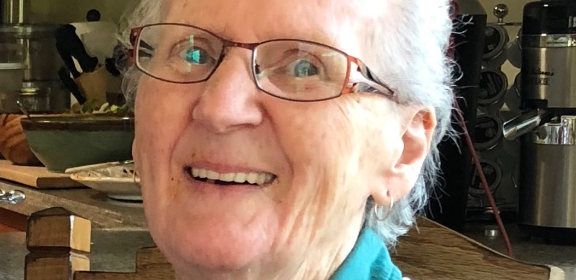Experts say better environmental design, staff training needed in wake of Okanagan care home deaths linked to aggression

Advocates, experts and trade unions are weighing in following the recent deaths of two seniors in Okanagan care facilities after violent altercations with other patients.
Marilyn Claire Anderson, 83, passed away on Dec. 13. The Princeton woman died 10 days after an altercation with another patient at the Orchard Haven care facility in Keremeos, B.C. Anderson was residing in the 10-bed dementia care unit at the Interior Health-operated facility.
The BC Coroner’s Service is investigating her exact cause of death.
On Dec. 19, a 90-year-old woman, who was a resident at the Spring Valley Care Centre in Kelowna, B.C., died following an altercation with another resident. The facility is privately operated and under contract from Interior Health.
The two Okanagan seniors are not alone. The Office of the B.C. Seniors Advocate tracks incidents of resident-on-resident aggression resulting in a degree of harm.
In 2018, there were 425 reports of resident aggression in B.C. care facilities, compared to 488 in 2017 and 418 in 2016. There is approximately 28,000 residents across the province.
Experts say design features need to be implemented to mitigate aggressive behaviours and there should be more staff training to deal with complex care needs.
Gloria Gutman is the founding director of SFU Gerontology Research Centre and the past president of the International Network for Prevention of Elder Abuse.
‘The numbers seem to be escalating because the number of older people with dementia are increasing,” she said.
“If you know that a person is short-tempered or has a history of acting out, then don’t put them in a room with another person. The simplest solution is to have single room occupancy,” Gutman said.
“What the literature is showing is that a number of these kinds of situations, where there is an attack of one on the other, happened in the bedroom in shared rooms or where somebody wanders in to a person’s room.”
Jennifer Whiteside is the spokesperson for the Hospital Employees Union, which represents approximately 20,000 care aids in B.C., including 4,000 in B.C.’s Interior. The trade union does not represent care aids at Orchard Haven or Spring Valley Care Centre.
Whiteside said many B.C. care facilities are understaffed.
“We know that the rates of dementia are increasing. We know that the health conditions that people are coming into nursing homes with are much more complex than they use to be, so that means that it’s even more critical than ever before to make sure that we have the proper staffing levels,” she said.
In September, the provincial government committed $240 million over three years to improve care for seniors. Premier John Horgan said that by the end of the three years, more than 1,300 new jobs will be created, including 900 health care aides, 165 registered nurses and a further 300 licensed practical nurses.
Whiteside said the funding boost should help to address the resident aggression problem, but recruitment and retention of new care aides is still a challenge.
“We have serious problems with recruitment and retention of care aides, particularly in the interior I hear from our members that there are serious problems finding people to do the work and keeping the,” she said.
Barbara Lindsay, director of advocacy and education with the Alzheimer Society of B.C., said more in-depth assessments upon entry to a nursing home is needed.
“What we can do is focus on a person-centered approach to care, where we really get to know the person with dementia when they come into care, and that’s working with families,” she said.
Lindsay also advocates for private rooms “and spaces that really make a difference for people with dementia, so they’re not confused about what they are seeing an experiencing.”
While Interior Health is reviewing the circumstances of the care home deaths, an official said no “specific changes” are on the horizon when it comes to staffing levels or environmental design.
“Caring for people with behavioral and physiological symptoms, so people with unpredictable behaviours, is a key focus for Interior Health,” said Cindy Kozak-Campbell, executive director of long-term care services on Jan. 10.
Source: Read Full Article


